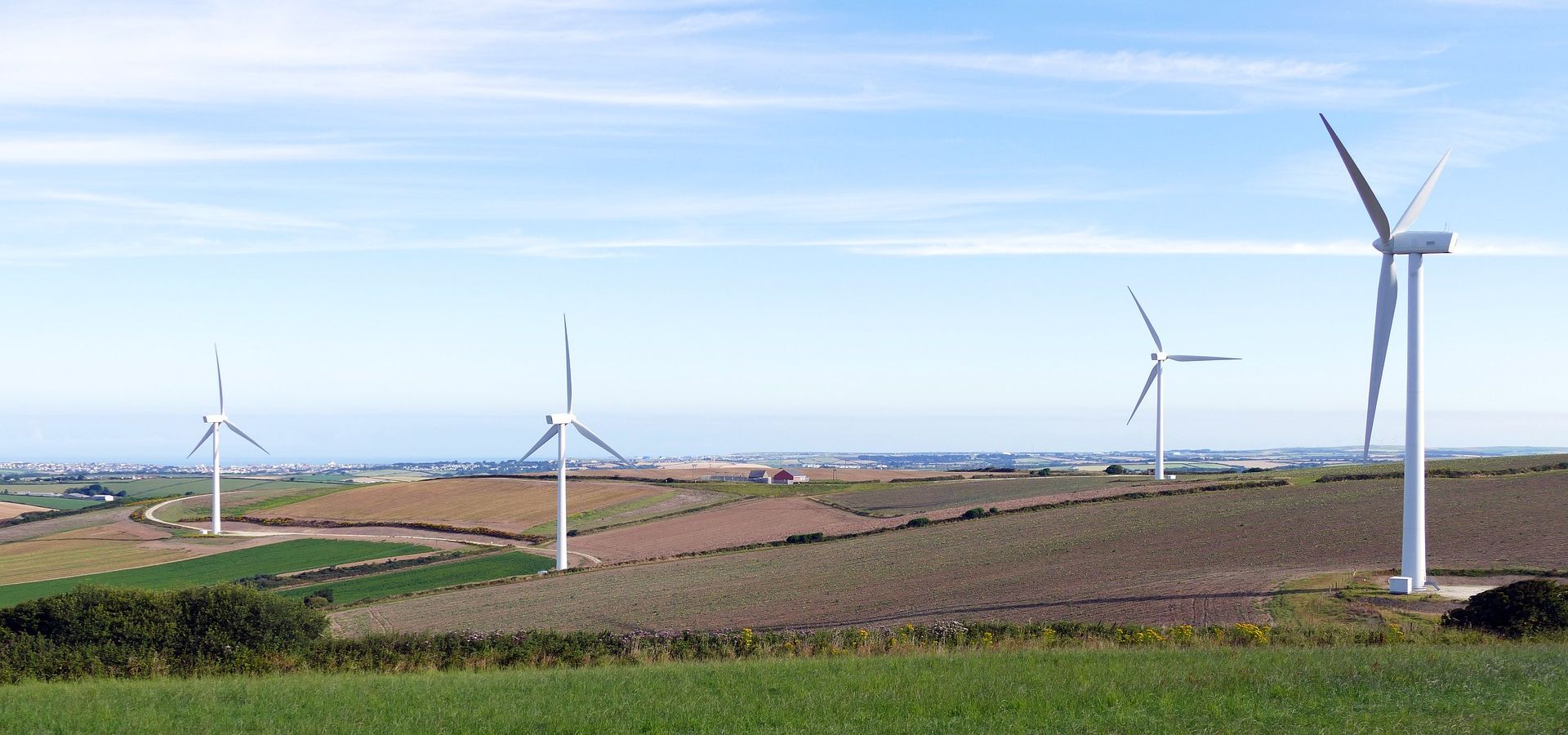Recent months have brought a series of signs of change on the horizon of Polish climate politics – some clearer than others. It is negligible how much such change is being forced by external circumstances and how much stems from genuine reflection. The climate crisis and its consequences are now so clear that the most hardened climate sceptics have been silenced. It is too soon to speak of an environmental breakthrough in Poland, but one can no longer definitively say that the right-wing remains completely indifferent to the ubiquitous signs of crisis. Michał Olszewski summarises the development.

Poland renewable energy sector requires more wind turbines (Public Domain)
In February, deputy head of the energy ministry Tomasz Dąbrowski declared that the government would withdraw some of the provisions of the anti-wind turbine act that had led to the collapse of that sector of the renewable energy industry in Poland. One might recall that protests led to the Sejm amending the law on renewable energy sources in 2016, introducing the so-called “10h principle”. This holds that the smallest permissible distance between buildings, or a protected area, and a wind turbine should be ten times the height of the device.
New wind turbines are up to 200 metres tall, meaning they must be at least two kilometres from buildings. In a country as densely populated as Poland, this requirement is impractical, which is why the wind farm sector witnessed the radically slowed development of new projects. It is in the general interest of all, including politicians, to withdraw this regulation that would ruin the RES market, as it puts at risk Poland’s EU 2020 target, which amounts to a 15 percent share of green energy in gross final energy consumption by 2020, and which has, until recently, been attainable. Failure to achieve this would mean a gigantic budget expenditure on a “statistical transfer”, i.e. a virtual purchase of RES energy from countries that have managed to exceed their own RES target.
There has also been a clear awakening among prosumers. According to the Institute of Renewable Energy, the total installed capacity in photovoltaics was about 500 MW at the end of 2018, and by May 2019 it was in excess of 700 MW. Although the legal environment is still not favourable, the number of private solar micro-installations in 2018 (both solar collectors and photovoltaic cells) is double what it was in 2017. At the moment there are about 65,000, and according to experts, 100,000 installations by 2020 is genuinely attainable. This may seem laughable when one considers that the number is over three million in Germany, but it is important to bear in mind that prosumers are treated with great suspicion in Poland, as if they were challenging large-scale and coal based energy. Why, then, the interest in solar energy among private owners? Simple: cell prices are falling, so even without government support they are worth the investment. In addition, in a nod to prosumers, the government has introduced a “thermo-modernisation” rebate. This makes investments in building insulation, as well as in collectors or photovoltaics, income-tax deductible.
In the spring of this year, observers noted a significant gesture: in a speech at the University of Warsaw, the President of the European Council, Donald Tusk, admitted that it was only in Brussels that he had understood the scale of the global warming challenge. These few words explain the mistakes in Poland’s climate policy of the past dozen years or so. This had been one of the few shared views across politics in recent decades – with some exceptions, liberals and conservatives had treated climate changes as a whim of Brussels officials and a tool of political pressure on Poland. It is a pity that it has taken so many years to understand how wrong those opinions were.
Finally, a seemingly minor development, but nonetheless noteworthy: running in the European Parliament elections was Tomasz Terlecki, the first candidate to focus exclusively on climate issues. He ran for the Wiosna party, which pledged to close all Polish mines by 2035 –though the feasibility of that proposition is another subject entirely. The candidate wanted to focus on reducing coal production, emissions and air pollution. Though ultimately unsuccessful, the very representation of such views signals that the parties are no longer disregarding climate change. This tone is clear in the narrative of the main opposition party, Platforma Obywatelska, which had until recently treated climate topics with great distrust. Movement is also visible on the right, which has split in two – on the one hand, those around Deputy Prime Minister Jarosław Gowin are announcing a prosumer revolution, while on the other the prevailing view remains that ecological policy is a conspiracy by the Brussels elite. And this is the perspective favoured by Prime Minister Morawiecki, who contributed to the provisions on EU climate neutrality being blocked.
Despite some encouraging signs, we must not forget the more ominous ones: spring droughts, followed by heavy rains, a heat wave on a scale unheard of for this season. These are signs that we have less time than we think. Timely action is of the essence.